Joint Webinar With UNDP Explores Ways to Accelerate Actions Toward the SDGs and Human Security: The Summit of the Future and Beyond
2024.10.21
On Sept. 5, 2024, the JICA Ogata Sadako Research Institute for Peace and Development (JICA Ogata Research Institute) and the United Nations Development Program (UNDP) co-hosted the webinar “Accelerating Actions Toward the SDGs and Human Security: The Summit of the Future and Beyond.” In his opening remarks, Dr. Tanaka Akihiko, President of JICA, highlighted the compounded crises affecting the Sustainable Development Goals (SDGs) and emphasized the importance of human security in addressing these challenges. He introduced JICA’s water-related projects in South Sudan, Uruguay, and Zambia, had positive effects on people by applying the human security approach with an emphasis on people-centered, multi-sectoral, prevention-oriented principles. Dr. Tanaka concluded by calling for solidarity and cross-sectoral cooperation to ensure that the most vulnerable are not left behind in the journey toward achieving the SDGs.

Dr. Tanaka Akihiko, President of JICA
The opening remarks were followed by pre-recorded messages from experts in various fields. In his video message for the session, Mr. Hoaliang Xu, Associate Administrator of UNDP, highlighted today’s compounded human security crises, including violent conflicts and climate emergencies. He noted that 30 years ago, the concept of human security shifted the focus from territorial protection to safeguarding individuals, exposing development blind spots. Mr. Xu emphasized the need for integrated policymaking and UNDP’s ongoing efforts to help communities overcome poverty and secure livelihoods.
Other video messages offering insights into the human security approach were submitted by Ms. Mehrnaz Mostafavi, Chief of the UN Human Security Unit, Mr. Rajagopal, Founder of Ekta Parishad in India, Ms. Joeven M. Reyes, Strategic Adviser for Sulong Peace Inc. in the Philippines, and Mr. Ben Rickie, National Healthy Settings Coordinator from the Solomon Islands, and were shared at the seminar. A brief excerpt of a video was also played featuring Professor Joseph Stiglitz, a Nobel Laureate in economics, who spoke about the importance of building trust to address human security concerns.
In his keynote address, Professor Mine Yoichi, Executive Director, the JICA Ogata Research Institute, highlighted the compounded crises that threaten human security and require urgent action. He proposed three key actions to accelerate progress on the SDGs: revisiting and reaffirming universal ideals, such as human security and dignity; investing in measurement tools to effectively track progress on the SDGs and human security; and taking a field-oriented approach to make a difference in communities and ensure no one is left behind. Mine also discussed the upcoming Summit of the Future as a crucial opportunity to address these challenges.

Professor Mine Yoichi, Executive Director, the JICA Ogata Research Institute
During the panel discussion, moderator Ms. Miyahara Chie, Director General, the JICA Ogata Research Institute, asked the panelists about the global challenges of achieving the SDGs and increasing polarization in the international community.
In response to the question on polarization, Ambassador Carsten Staur, Chair of the OECD Development Assistance Committee (DAC), highlighted the rise in violent conflicts and fragility among vulnerable populations, noting that 73% of the world’s extreme poor live in fragile contexts. He emphasized the need for new approaches to financing and communication strategies that engage leaders and revitalize multilateralism, particularly through joint development and peace strategies.
Dr. Pedro Conceição, Director of UNDP’s Human Development Report Office, discussed the pervasive sense of insecurity felt by people worldwide, noting that six out of seven people feel insecure. This insecurity fuels a lack of trust in institutions and drives polarization, pushing people to political extremes. Dr. Conceição argued that addressing perceptions of insecurity through advancing human security could help rebuild trust, restore a sense of agency, and ease polarization.
Addressing the questions, Professor Siriporn Wajjwalku, Professor at Thammasat University, focused on the need to strengthen civil society and involve local communities in decision-making processes. She stressed the importance of empowering local actors and highlighted the need for governments to view civil society as partners rather than adversaries. Professor Wajjwalku also called for greater youth engagement by integrating human security and SDG concepts into education.
Mr. Hara Shohei, Senior Vice President of JICA, offered practical examples of JICA’s work in disaster risk reduction and infrastructure development, including projects in Turkey and Bangladesh. He emphasized that human security is a multifaceted concept that should be operationalized through people-centered approaches, particularly in infrastructure projects. Mr. Hara highlighted the importance of local-level engagement and solidarity across borders to tackle challenges like climate change and cross-border risks.
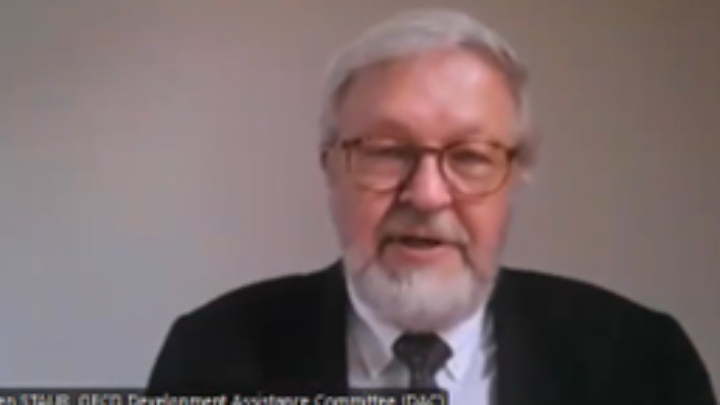
Ambassador Carsten Staur, Chair of the OECD Development Assistance Committee
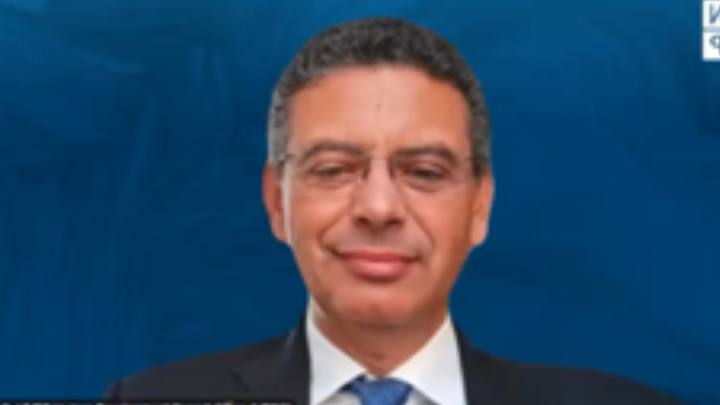
Dr. Pedro Conceição, Director of UNDP’s Human Development Report Office
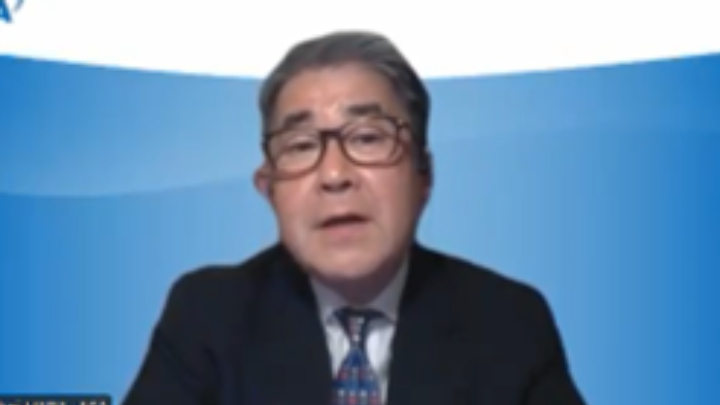
Hara Shohei, Senior Vice President of JICA
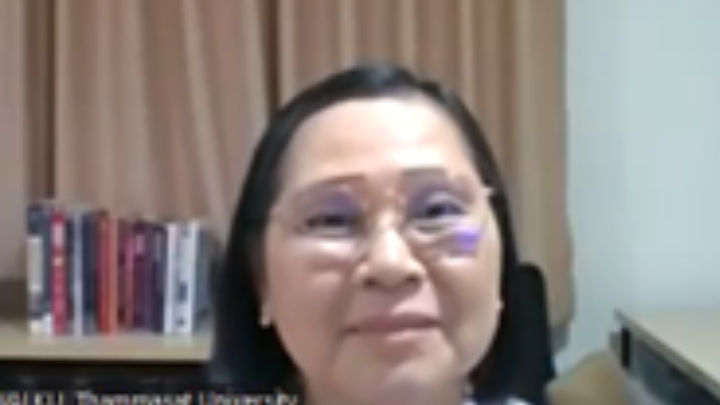
Professor Siriporn Wajjwalku, Thammasat University
In the Q&A, audience members posed multiple questions, to which the panelists responded. On the topic of women’s role in overcoming polarization, Ambassador Staur emphasized gender equality as a vital cross-cutting issue, particularly in peacebuilding, where challenges persist. He asserted that women’s participation in peace processes is crucial for building stable societies and advancing sustainable development. In response to a question about encouraging more effective collective action across the humanitarian-development-peace nexus, Dr. Conceição highlighted the multifaceted challenges, including bureaucratic, political and financial issues, as different stakeholders represent different interests and incentives. It’s a question of how willing those in power are to take risks, he stressed. Next, Professor Wajjwalku suggested that to strengthen the connection between civil society and national and international actors, it is necessary to provide civil society with more information and actively involve them in the policymaking process. Finally, when asked about the effectiveness of disaster prevention efforts, Mr. Hara noted that since it’s impossible to predict every uncertainty and fully prepare for all disasters, it is essential to learn from the experiences gained through long-standing cooperation.
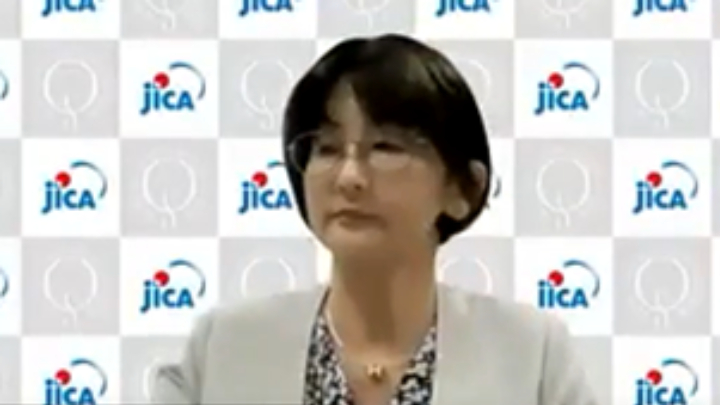
Ms. Miyahara Chie, Director General of the JICA Ogata Research Institute
In his closing comments, Professor Mine stressed the importance of trustful dialogue between stakeholders and democratic governance that protects human security. He also highlighted the need for fair representation in decision-making, particularly for marginalized groups and future generations.
A recording of the webinar is available at the following link.

事業事前評価表(地球規模課題対応国際科学技術協力(SATREPS)).国際協力機構 地球環境部 . 防災第一チーム. 1.案件名.国 名: フィリピン共和国.

事業事前評価表(地球規模課題対応国際科学技術協力(SATREPS)).国際協力機構 地球環境部 . 防災第一チーム. 1.案件名.国 名: フィリピン共和国.

事業事前評価表(地球規模課題対応国際科学技術協力(SATREPS)).国際協力機構 地球環境部 . 防災第一チーム. 1.案件名.国 名: フィリピン共和国.

事業事前評価表(地球規模課題対応国際科学技術協力(SATREPS)).国際協力機構 地球環境部 . 防災第一チーム. 1.案件名.国 名: フィリピン共和国.

事業事前評価表(地球規模課題対応国際科学技術協力(SATREPS)).国際協力機構 地球環境部 . 防災第一チーム. 1.案件名.国 名: フィリピン共和国.
scroll